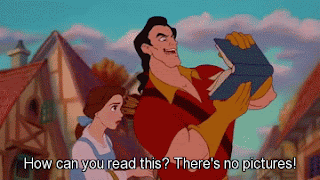Monday, 31 August 2020
Why Don't More Men Read Romance Novels?
Monday, 24 August 2020
Prologues - Love Them or Hate Them?
 |
| Photo by INVICTUS Tailoring﹒sneaker socks on Unsplash |
- Avoid info dumps. You don't need to tell everything.
- Avoid writing a scene that creates atmosphere but has nothing to do with the story.
- Avoid explosions and fireworks to make up for a dull or slow first chapter
- be in a different POV than the rest of the book.
- It can be from the villian's POV,
- the setting's POV or
- even another character's POV.
Here are two examples of prologues that really work. I recommend you read them.
Love to Love - finding new authors to read.
Monday, 17 August 2020
Multiple Time Lines
by Nicole Hurley-Moore
Hi everyone and it’s lovely to be here
again.
I’ve just started writing a couple of new
stories and I noticed that I’m beginning to use multiple time lines more often.
I really love that you can give so much depth by using different time lines.
In my latest book, The McCalister Legacy
the contemporary story of Berry McCalister coming back to her hometown as an
adult is the main focus. She hasn’t been back to Harlington since her family
was ripped apart by tragedy when she was a child. However, I also used two
additional time periods to add more dimensions and maybe even give the reader a
hint of what is actually going on. The
first is in 2007 when Berry is a child and the second is from 1906.
I used dual time lines in Lawson’s Bend as
well. The main story takes place in 2018 and the second time line is from ten
years earlier. In this book the second time line reveals what happened and you
are given an insight into the thoughts and the actions of the characters at
that time. This helps to add weight to how they react in the present story
line.
Personally, I always get a kick out of reading
and writing different time lines. I have to admit I love the 1906 story within The
McCalister Legacy. It’s about a little kid who follows a rabbit, gets a bit
lost and discovers … well, I guess that that bit is a secret.
So what do you think? Do you have a
favourite dual time line story?
I love to watch Korean dramas (no,
seriously they’re great and if you’re a hopeless/hopeful romantic like me,
you’ll love them too. Thank goodness for Netflix!)
I love to laugh with my family over a good
comedy
I love to learn anything new – from a
skill, to a recipe to a new language.
Author Bio: A lover of the quiet and peaceful surrounds of the Australian countryside, Nicole Hurley-Moore lives with her family in a rural town in the Victorian Central Highlands and writes full-time. A fan of happily-ever-afters, she writes contemporary rural stories but being a closet medievalist has her occasionally dabbling in the odd medieval tale. Other works by Nicole are McKellar's Run, Hartley's Grange, Country Roads and White Gum Creek.
You can find Nicole on social media at:
Facebook: https://facebook.com/nicole.hurleymoore.authorTwitter: https://twitter.com/nhurleymoore
Pinterest: http://www.pinterest.com/hurleymoore/







